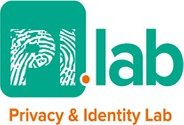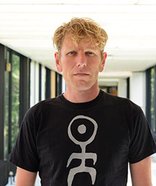About the PI.lab
The Privacy & Identity Lab (aka the PI.lab) was founded on 11 November 2011 and is a collaboration between Radboud University Nijmegen (RU), Tilburg Institute of Law, Technology, and Society (TILT) and TNO. The aim of this collaboration is to found a multidisciplinary, national and international centre of expertise for research and innovation in the area of digital privacy and identity. Stichting Internet Domeinregistratie Nederland (SIDN) provided financial support for this initiative until the end of 2015.
Context
Society becomes ever more digital, causing several fundamental changes, like the blurring of the distinction between reality and virtuality; the reversal from information scarcity to information abundance; and the shift from the primacy of entities to the primacy of interactions. Each of these transformations result in a number of challenges, including the impact on our understanding of (and subsequently the protection of) our privacy and identity in our digital future. The confluence of the real and the virtual world will make it harder for people to totally ‘disconnect’. This is exacerbated by the fact that your interactions (the shape and volume of your interactions) are increasingly seen as defining you and your value to others: the cost of disconnecting may simply be too high. Personal data has been called ‘the new oil’, and increasingly businesses are trying to monetise personal data.
The World Economic Forum has recognised that although the explosive growth in the quantity and quality of personal data has created a signifcant opportunity to generate new forms of economic and social value, high-profile data breaches and individual perceptions of powerlessness have resulted in a lack of trust among all stakeholders. It recommends, among others, to develop and agree on principles to encourage the trusted flow of personal data. It also coined the crucial distinction between volunteered, observed and inferred data.
Why are we here?
First of all, we recognise that privacy is both a fundamental human right and a critical societal value, that deserves protection while recognising other individual rights and societal and economic needs.
Secondly, we believe that people should be free from unreasonable constraints on the construction of their own identity in the digital society. That is why we are called the Privacy & Identity Lab: without studying the concept of identity, one cannot properly understand privacy.
Thirdly, we believe that people should have agency. This means that people should be able to have a proper understanding of the (digital) world around them. They should be able to predict the consequences of their actions, and should be able to build trust in the their digital lives through the choices they make. People should be empowered to exercise their digital freedoms, through technical tools and safeguards, proper legal protection and suitable social structures.
Finally, we believe that a thorough scientific understanding of the issues surrounding privacy and identity is necessary for a balanced societal debate on these topics. Moreover, our scientific result will benefit from a continuous engagement with our stakeholders in society.
What do we do?
The Privacy & Identity Lab (aka the PI.lab) is a leading scientific research institute in the area of digital privacy and identity. We study the fundamental dimensions of privacy and identity from a legal, technical and social perspective. We develop the legal, technical and social methods and tools for proper privacy protection and identity management, through multidisciplinary research and development. We apply our knowledge in practice, in cooperation with our stakeholders in government, industry and society, to achieve societal impact. We engage with society and participate in the public debate.
Managing board
Director
Frederik Zuiderveen Borgesius is Professor ICT and Law at Radboud University Nijmegen, where he is affiliated with the interdisciplinary research hub on Security, Privacy, and Data Governance: the iHub.
Governing board
Chair
Omar Niamut is Director of Science of the Unit ICT, Strategy & Policy at TNO.
He is responsible for building and maintaining a knowledgebase on digital technologies.
Board member
Tamar Sharon is associate professor at the department of Practical Philosophy of the Radboud University, Nijmegen, and leading scientist at iHub.
Principal scientists
Jaap-Henk Hoepman is associate professor at the Institute for Computing and Information Sciences, Radboud University, The Netherlands
Board member
Eleni Kosta is full Professor of Technology Law and Human Rights at the Tilburg Institute for Law, Technology and Society (TILT, Tilburg University).





